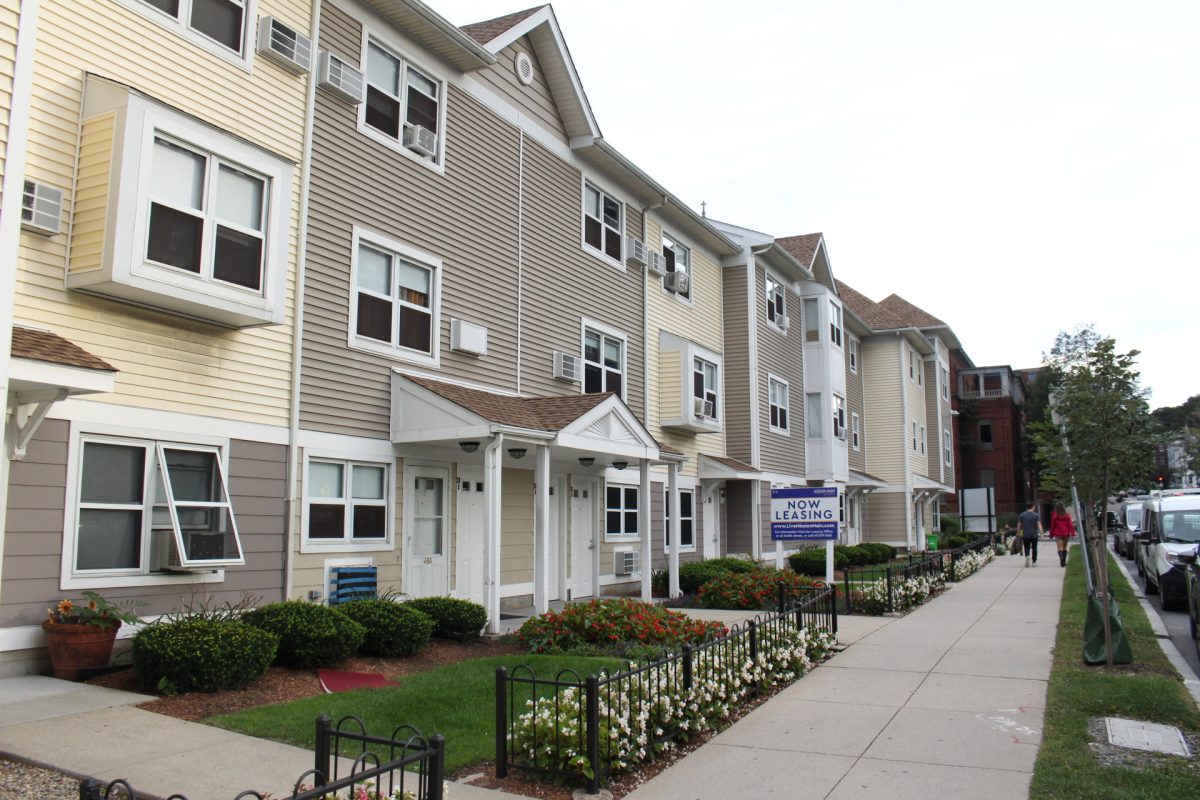Students travel from across the country and around the world to Boston with promises of a great education and a bustling city to enjoy their college years. While I have few complaints about the quality of my education, the same cannot be said about the price of my rent. The combination of rising housing costs, underdevelopment and restricted economic growth has left residents struggling to catch up.
A clear affordability crisis plagues Boston, and data indicates that a lack of home supply is to blame. But it’s not too late to turn this trend around. Local governments should relax their land-use regulations before the situation devolves further because local land-use restrictions dictate what kinds of homes may be built. But they haven’t — municipalities across the state refuse to allow an adequate supply of homes to be built.
Therefore, the state Legislature must take action fast. State interference with municipalities’ self-governance should not be necessary in the first place. But municipalities only have control over their laws because the state has delegated much of its day-to-day lawmaking powers to cities and towns, a concept commonly known as “Home Rule.” However, the state can and should reel in those powers if towns flout state law or cannot lower housing prices.
Governor Maura Healey’s housing bond bill, entitled the Affordable Homes Act, was presented to the Legislature late last year as the governor’s signature housing policy. The policy would fund the renewal of tens of thousands of homes throughout the state and loosen many land-use restrictions. The bill would allow for over $4 billion of public investment to build over 40,000 homes, according to Healey’s office, while implementing tax credits and laying the groundwork for further legislation and executive action. The bill, if enacted, would still require many councils to update their land use regulations, but state financing and support are sorely needed.
College students in Massachusetts give so much to the state yet have not received the support we need. We participate in public life and the city’s culture, and we fund our universities so they can perform amazing and life-changing research. But most relevantly, we contribute to the economy; a September 2023 Boston Planning & Development Agency report showed that almost half of all college students are employed in the city.
At the same time, the high concentration of students and low vacancy rates in Greater Boston means that students are forced to battle over housing, a human necessity. Enacting the proposed bill may relieve a longstanding financial burden students face.
Localities could take inspiration from city councils such as Minneapolis’, which implemented numerous zoning reforms since 2020. Some of these reforms, such as eliminating single-family zoning entirely and expanding where apartments may be built, are no-brainers because they allow supply to catch up to demand. Individuals who want to build or buy single-family homes have that right. However, land should not be solely limited by law to the least efficient, most environmentally destructive form of housing. If dense housing was everywhere in Boston — currently, it is not even close to catching up to demand — perhaps students wouldn’t be so stressed about finding an apartment in a convenient location.
At the same time, we must recognize the reality we are living with. Some towns across the state have refused to liberalize their housing regulations. Milton, a wealthy suburb of Boston that rejected a plan to edit its zoning regulations to comply with state law, is currently being sued by the state. Healey also deprived the town of a state grant amounting to over $100,000 as a result of its vote, yet there have been no changes to the town’s regulations. Even councils that attempt to comply with state law have their city councilors subject to immense political pressure and concentrated campaigns against them.
This places individual councilors in a tough spot. If they don’t vote to adhere to state law, they face consequences from the state; if they do, they face intense blowback from local residents.
Public investment is not enough when considering our state’s future. The Legislature should be bold and demand cities allow affordable housing production — along with further consequences if they do not. An example of what could be done is to follow California’s lead of “Builder’s Remedy,” which would balance local discretion with the urgent need to rectify this issue.
If municipalities do not allow the production of homes needed to achieve Healey’s housing targets, a “Builder’s Remedy” would mandate that those localities allow the production of any new homes until they comply with housing targets. State law could implement measures to reduce the abuse of environmental regulations like California has also done. Or, it could take a densifying approach to zoning, something Boston Mayor Michelle Wu has encouraged.
Homeowners in Greater Boston have often opposed relaxations of varying land-use restrictions. One Boston Globe investigation details “what subversion of the law looks like”; affluent homeowners argue in favor of “retaining community character” — this kind of criticism of new housing is steeped in ideas of exclusion and racism — and the importance of cities and towns forming their laws. A report from Boston Indicators says that exclusionary tactics by towns have contributed to the housing shortage and solidified de facto racial and economic segregation.
Evidence shows that small municipalities are already much more restrictive than cities, directly causing Greater Boston home prices to continue to rise. Claimed fears of the state government usurping local control ought to be ignored if towns make no efforts to mitigate the housing disaster they have caused.
When councils do not counteract the immense crisis that faces this state, they fail old and new residents alike — especially renters. As graduating seniors, many of my peers and I would love to work and live in Boston; students have the drive and passion to succeed and further contribute to the economy.
But we can’t do that without bold action from the state because rent is simply too high for students. The Legislature must implement policies that allow more housing while maintaining and investing in our current housing stock — which Healey’s proposed bill would do. Since the governor’s housing bond bill could alleviate rents across the state, state legislators should embody their progressive and equitable ideas and pass it.
Vinesh Khemlani is a fourth-year political science and communication studies major. He can be reached at khemlani.v@northeastern.edu.
















